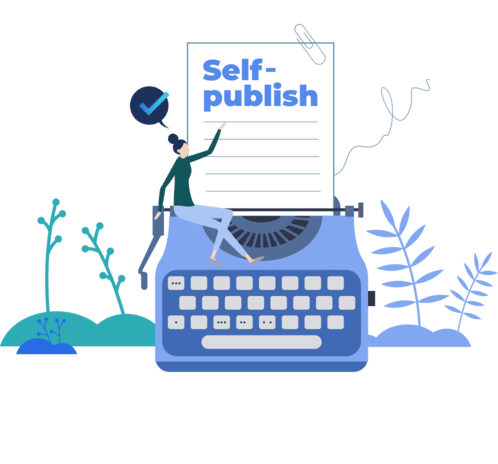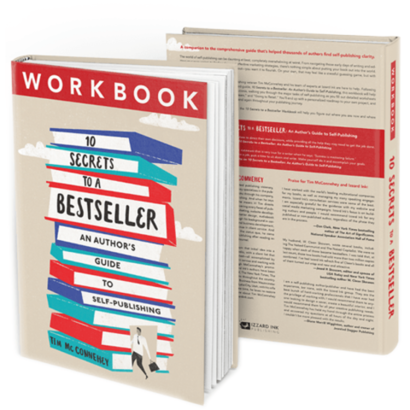THE TOP PUBLISHING TRENDS OF 2024
AND BEYOND
The past few years have brought unexpected changes into every sphere of our lives, and the world of writing, reading, and publishing is no exception. However, the publishing world had already been shifting continuously for over a decade. The coronavirus pandemic has pushed so many industries to take massive, previously unthinkable leaps into the digital world, but for the publishing industry, many of these changes were nothing new.
What to Look Out for in 2024
The growth of eBooks and digital marketplaces had already taken many readers into the digital age, and with self-publishing and hybrid publishing, much of the publishing process had increasingly moved into cyberspace as well, long before the pandemic. So you might expect that the publishing industry was better prepared than others to deal with its effects—and in some ways at least, that’s been true. These shifts tell us a few things about what to expect in 2024.
Beyond the pandemic, other large-scale changes to the publishing industry are also still underway, and those shifts are expected to continue into 2024. As we discussed last year, self-publishing authors are increasingly struggling to stand out in a crowded marketplace. New technologies like AI, machine learning, and cross-promotional marketing, as well as collaborative approaches and platform-building, are key trends for authors working to stand out.
Book Publishing Trends are Back to Normal
- The publishing industry has already been facing radical changes in recent years, and in many ways, the effects of the coronavirus pandemic are pushing things in the same direction they were already moving. Major publishers, after already losing much of their dominance in the market, have been hit hardest by the pandemic.
- Direct access to bookstores was one of the last big advantages for traditional publishers, and those already-struggling brick and mortars suffered from the initial lockdowns, as well as the public’s continued efforts to stay at home when possible. The habits formed during the pandemic seem likely to continue; readers are in the habit of buying books online, why go back?
- It’s good news for Amazon and other online platforms, but bad news for brick and mortar bookstores. The book retail landscape was moving in this direction already, and the events of recent years have contributed to existing pressures.

The Current State
of Self-Publishing
- Self-publishing will continue to benefit from the focus on the digital marketplace, where authors face a much more level playing field competing with traditional publishers and their distribution networks.
- Don’t mistake this for the end of print books, which have been eclipsed by eBooks. Print sales remain key, and in fact, were higher in 2020 than during the same period of 2019. People are still reading in print, and now more than ever, they can get their hands on books without going to a bookstore.
- In this online context, publishers are increasingly finding success selling directly to consumers, and in doing so, avoiding the hefty fees taken by retailers—these fees total at least 40 percent, and often more. These direct-to-consumer sales are adding to the pressure on bookstores, and opening new doors for authors and publishers.
- As a result, prices for digital ads have skyrocketed, as competition to reach readers heats up. It’s yet another reason to build an effective platform—your followers can buy your book directly from you or your publisher’s website.
Author Platforms
- Self-publishing authors and independent publishers are learning the same lesson traditional publishers have known for a long time; in a crowded book market, authors without an established platform don’t have a clear path to success. If readers don’t have a reason to seek out your book, the quality of your writing won’t matter, because few will see it. With so many books published, even a great book cover and conventional marketing efforts often are not enough. Traditional publishers look for authors with a following—an audience that’s ready and waiting to hear (or read) what they have to say.
- This could take a variety of forms. You might be an established academic expert writing a nonfiction book for the general public. Perhaps you’re a successful artist publishing an art book, or a respected chef publishing a cookbook. Major publishers look for authors who will be of interest to readers. This may sound discouraging for aspiring authors, but you can start small. If you want to publish a fiction book, start publishing short stories and sharing them on social media. Share your art on Instagram. Even a small following can provide your first set of readers, positive Amazon reviews, and a jumping-off point for success.

The Importance of Promotion
- It’s important to keep platform building in mind, because the cost of ads will almost always exceed the amount of money an author will earn from book sales stemming directly from the ad. You won’t, for example, earn three dollars for every dollar spent on ads. Instead, ads are a longer-term investment in building your platform as an author—which, once established, will benefit sales of this book as well as future projects.
- If you’re starting from scratch and think you’ve written something with a lot of potential, it’s often worth it to seek out an experienced public relations firm to launch a campaign. Ultimately, promotion and marketing are about connections—connections to audiences and connections to the right media outlets and platforms for those audiences. Instead of building this network from scratch, authors can benefit from working with an established PR firm. However, these firms often only take on books they believe are marketable—so keep this in mind from the earliest stages of writing and editing.
Ready to Start
Your Own Journey?
Book Cross-Promotion
- Cross-promotional strategies are becoming more important as a way to reach a wider audience.
- Whether its books published alongside films and documentaries, books published to promote a business, books published to boost speaking events, or cross-promotion with books from other authors, this marketing approach is an increasingly appealing way to reach a wider audience.
- Authors should look for these opportunities, and consider how their book can bolster their goals in other areas. Also consider connecting with other authors, or anyone publishing content that could help attract readers to your book.
- Cross-promotion with media beyond books is one way to interest people who don’t read as regularly, who might be interested in your book, but might not typically be aware of new book releases.
Machine Learning in Publishing
- Artificial intelligence technology is capable of some surprising feats these days. In publishing, AI is being used in everything from marketing to translation, at Izzard we’ve been taking AI even further.
- With AI, we can succinctly summarize entire books by chapter, in one page or less. This instant summary helps designers, PR experts, and others who no longer need to read as much of a book in order to figure out how to represent it to potential readers—both streamlining and cutting costs.
- While it won’t replace the work of editors and others, AI can save time and money by taking on the time-consuming heavy lifting of reading and research, allowing editors to focus on fine-tuning summaries and descriptions, rather than sifting through plot details.
- Based on its analysis, our AI can also determine SEO keywords for marketing text, again saving time for editors and other team members.
- Perhaps most remarkably of all, AI sentiment analysis can detect what emotions are predominant in a book—for example, breaking down a manuscript into percentages of joy, fear, anger, and sadness. Before any professionals are paid to spend time reading a manuscript, we can use this information to compare it to other successful books in the same genre and books with similar subject matter. Early on, this gives a clear picture of where a book stands and what work needs to be done.
- AI can also detect writing style, and indicate what other authors and books a manuscript’s writing style most closely resembles—this goes deeper than genre—to help determine that readers of another author’s style may enjoy this book as well, allowing much more precise audience targeting. Finding these “comparable titles” early in the publishing process allows authors to understand who their audience is, and in turn, how to reach them. Readers often gravitate more toward a certain writing style rather than specific categories or content, and this can be harder for a human editor to quantify.
- AI can also detect language use, including whether UK, US, or Australian English is used, and then compare the book to others in that language and subject. Izzard’s AI will also soon be able to recommend optimal pricing and predict sales.
- AI even has the potential to create audio narration for audiobooks. It may not offer the quality of working with a seasoned narrator, but for many authors the substantially lower cost will open the door to creating an audiobook when it may not have been an option otherwise.
- AI analysis can track writing quality itself, with metrics such as readability; how easy a text is to read, ranging from “difficult” on one end of the spectrum, such as a Harvard Law Review article, to the kind of simple language expected in a children’s book for the youngest age groups. This readability can be tracked and charted throughout the text of a manuscript, flagging problem areas for an editor to focus on, and ensuring that readability is consistently on target for a book’s intended audience.
- Before investing in your book, it’s always wise to get initial feedback on whether it’s ready for the investment. AI analysis is quick, objective, and provides a great supplement for assessments by experienced editors. Automation in publishing goes beyond manuscript analysis; it is also being used in areas like royalty tracking, which provides much more detailed information on where sales are strongest—for example, showing which formats and retailers are selling most effectively. Working with a self-publishing company that takes advantage of, and even innovates, this growing technology space will really help authors stand out in the crowded marketplace.
Understanding the Competition

Keep an Eye on Your Competitors
Authors are learning how important it is to pay attention to their competition—ideally starting early on in the writing and publishing process. With so many books out there, authors can learn key strategies by understanding what competing books are offering, and how other authors are successfully appealing to the same readers. Look for cues—do all competing authors in your category use a similar style for book covers? That might tell you a lot about what catches your audience’s eye on the (often digital) shelf.

Understand
Their Marketing
How are the competition marketing books? Is social media an important element? Is there an online community for your genre that competing authors are involved in? Conversely, but perhaps even more importantly, ask yourself what your book can offer that the competition does not. It’s about finding a balance between taking cues on how authors are connecting with their audience, while also offering something unique that will help your book stand out from that competition.

Employ AI
Increasingly, this is one of the areas where AI can help. No author or publisher has an encyclopedic knowledge of every book ever published—but AI can quickly and accurately identify exactly which books might share your audience. And not just in terms of genre, but also sentiment and writing style—which often more closely reflect what books readers will enjoy than genre and subject categories. This knowledge allows for much more effective ad targeting.
Be on Alert for Plagiarism
- More and more self-publishing authors have found their work plagiarized in recent years, and there’s no question this trend will continue into 2023. With anyone able to publish a book on platforms like Amazon, plagiarists will either copy a book word for word or tweak it just enough to make the plagiarism harder to detect, and then publish it under their name—often marketing it in a particularly profitable category.
- There are many steps you can take to protect your book, and in 2023 you’ll most likely want to do everything possible.
- Register your copyright, use copyright notices, look into Digital Rights Management for your eBook.
- Use tools like Google Alerts to get notifications of where your text is showing up online—this will also help you track down piracy.
- You can search for short, unique phrases from your book—try picking something toward the end of your book, since many plagiarists will work harder making changes to the beginning portion of a book. You can also use these passages to set up your Google Alerts.
Collaborative Publishing:
The Best of Both Worlds
- In recent years, self-publishers have been faced with a problem; the same publishing revolution that made publishing so accessible now allows literally anyone to publish a book. While it’s easier than ever to publish, it’s harder than ever to succeed on your own in such a crowded marketplace. Traditional publishers are no longer all-powerful gatekeepers controlling who can publish a book, but their time-tested publishing procedures are still a much more direct path to success than going it alone on Amazon.
- To bridge this gap, many authors are aiming for a middle ground, with both the control and accessibility of self-publishing, and the same high-quality results traditional publishers are able to achieve.
- The market for companies offering publishing services is nearly as crowded as the book market itself these days, but authors are realizing that with access to the right networks, there’s nothing stopping them from working with the exact same professionals that major publishers have relied on for years. Those professionals bring decades of experience and deep knowledge of proven approaches to editing, design, and marketing for each genre and book category. They know their audience, they know how to stand out in a marketplace, and they know how to get results.

- Returning to the theme of automation, a good collaborative publisher will use technology behind the scenes in ways that help the author create a quality book and market it to the right audience. You may not always know that the technology is there, streamlining the publishing process—but it’s worth asking ahead of time how a publisher uses technology to provide solutions.
- Authors can’t do everything; even a perfectly written manuscript needs a second pair of eyes for an edit. A few weeks of Google research by authors can’t compare to decades of experience working on bestsellers, and AI adds an additional layer of precise and objective analysis. This external, expert perspective is how traditional publishers consistently get results. Self-publishing authors are realizing they can walk those same well-traveled paths to success, but without having to jump through hoops to have a small chance at a traditional publishing deal.
Conclusion
In an industry facing such rapid changes, authors gain a real advantage by staying on top of trends and shifts in the market. If the past 15 years saw the birth of self-publishing as we know it, the next decade will see it take shape into a mature, established alternative to the time-tested world of traditional publishing.
The most successful authors will stay informed and stay ahead of the curve, working with the right publishers and taking advantage of the groundbreaking opportunities offered by bourgeoning technologies for publishing solutions.
How We Work

Plan
We assist you with this crucial first step by doing a manuscript assessment. We then strategize together to come up with a plan to align with your goals and vision.

Pick
We carefully curate 2 to 3 publishing professionals for you to choose from, for each step of the process—all experts with years of experience and proven results.

Publish
We will be working on your behalf in the background, navigating all the other details to make sure your project is ready to be published.

Yes, it’s Personal
You will have a dedicated book publishing consultant who is here to guide you and answer all of your questions, every step of the way.
Fluent in Any Genre

Non-Fiction Books
Establish yourself as an expert with a polished, professional approach, ensuring your points are clear, your facts are correct, and the final product is a pleasure to read.

Fiction Books
Bring your story to life, with support from handpicked and experienced experts who understand your particular genre and audience.

Coffee Table Books
Publish a beautiful, polished book that will brighten spaces and spark conversation, drawing on top design talent and premium printing options.

Memoir Books
Turn your life experiences into a story that flows succinctly and draws readers in—more than a set of experiences, this is your story, for readers to connect to and enjoy!

Young Adult Books
We’ll help craft your message with the age of your readers in mind, while telling a story that parents, librarians, and young readers will love.

Children’s Books
Our seasoned editors will help you tell your story the right way for your age group, our illustrators will help it come alive on the page, and our marketing team will find opportunities to reach parents, libraries, and schools.

Religious Books
Connect with readers on a spiritual level and publish a life-changing book driven by purpose.
Looking for More Free Resources?

Download Our Exclusive Workbook for Self-Publishing Authors
The Workbook will provide you with tools to:
- Define your goals. A free consultation is just the beginning.
- Refine your manuscript. Make necessary edits and remove any over-staging.
- Create a business plan for your book. This will empower you to begin the process of self-publishing.


Gain the Izzard Ink Edge
Wherever you are in your journey, we are here to help and guide you along toward publishing success.
À la carte services may be available under strict circumstances, please inquire for more information.
Start your Manuscript Assessment
Subscribe for Self-Publishing Pro Tips and Free Resources Delivered Directly to Your Inbox
(We don't send emails often, but when we do, we make sure it counts)


